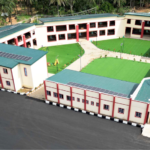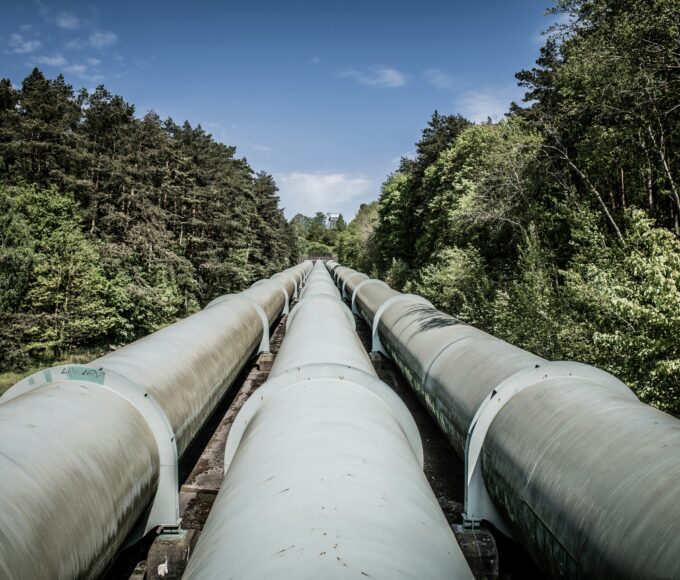- Home
- Features
- Startup Zone
- Projects
- Policies
- Shop
- Policies
- Projects
- Startup Zone
- Country Spotlight
- Analysis
- Tech
- Policies
- Projects
- Startup Zone
- Country Spotlight
- Analysis
- More
- Beyond the Kalashnikov: Africa’s Shift Toward Technology-Driven Warfare
- Afrail Express: Uniting a Continent on Rails
- AFRICA’S ENERGY CORRIDORS: CONNECTING POWER, PEOPLE, AND PROSPERITY
- Startup Lions Campus: Empowering Kenya’s Digital Generation
- L’Art de Vivre’s Le Paradis de Mahdia: Tunisia’s Model for Sustainable Luxury
- The Lobito Corridor: Rewiring Africa’s Trade Arteries Through Strategic Infrastructure
- AFRICA’S GREEN ENERGY TRANSITION: A BEACON OF HOPE FOR CLIMATE ACTION
- Dangote Refinery: Showcasing Africa’s Project Success Story
- AFRICA GREEN ECONOMY: ALL YOU NEED TO KNOW
- The Most Important Amicus Brief in the History of the World
- The Rise of Indigenous UAVs: Africa’s Drone Capabilities in Warfare and Surveillance
- AFRICA’S LARGEST OIL PRODUCERS: A COMPREHENSIVE OVERVIEW
- Beyond the Kalashnikov: Africa’s Shift Toward Technology-Driven Warfare
- Afrail Express: Uniting a Continent on Rails
- AFRICA’S ENERGY CORRIDORS: CONNECTING POWER, PEOPLE, AND PROSPERITY
- Startup Lions Campus: Empowering Kenya’s Digital Generation
- L’Art de Vivre’s Le Paradis de Mahdia: Tunisia’s Model for Sustainable Luxury
- The Lobito Corridor: Rewiring Africa’s Trade Arteries Through Strategic Infrastructure
- AFRICA’S GREEN ENERGY TRANSITION: A BEACON OF HOPE FOR CLIMATE ACTION
- Dangote Refinery: Showcasing Africa’s Project Success Story
- AFRICA GREEN ECONOMY: ALL YOU NEED TO KNOW
- The Most Important Amicus Brief in the History of the World
- The Rise of Indigenous UAVs: Africa’s Drone Capabilities in Warfare and Surveillance
- AFRICA’S LARGEST OIL PRODUCERS: A COMPREHENSIVE OVERVIEW
- Beyond the Kalashnikov: Africa’s Shift Toward Technology-Driven Warfare
- Afrail Express: Uniting a Continent on Rails
- AFRICA’S ENERGY CORRIDORS: CONNECTING POWER, PEOPLE, AND PROSPERITY
- Startup Lions Campus: Empowering Kenya’s Digital Generation
- L’Art de Vivre’s Le Paradis de Mahdia: Tunisia’s Model for Sustainable Luxury
- The Lobito Corridor: Rewiring Africa’s Trade Arteries Through Strategic Infrastructure
- Startup Zone
Top Insights
Free Trade Zones and Their Role in Africa’s Logistics Growth

Free Trade Zones (FTZs) are increasingly recognised as catalysts for logistics growth in Africa, offering a range of opportunities through relaxed regulations, tax exemptions, and customs benefits. In countries like Nigeria, FTZs facilitate manufacturing and re-exporting processes, attracting multinational corporations and fostering economic development. As the African Continental Free Trade Agreement (AfCFTA) takes effect, these zones are positioned to amplify trade, enhance logistics, and bolster economic growth throughout the continent.
Understanding Free Trade Zones in Africa
Free Trade Zones are defined areas where businesses can operate with reduced regulatory burdens, tax incentives, and ease of customs processes. In Nigeria, FTZs were established to stimulate industrial development, particularly focused on export-oriented sectors. They serve as hubs for companies looking to manufacture, process, and export goods with minimal government interference.
READ ALSO: From Vision To Value: How Africa’s Special Economic Zones Are Powering Industrialisation
Benefits of Free Trade Zones
1. Tax Incentives: Companies operating within FTZs benefit from significant tax exemptions, including waivers on import/export duties, value-added tax (VAT), and other regional taxes. This reduction in operational costs often leads to improved profit margins and encourages more businesses to invest in these zones.
2. Streamlined Operations: FTZs simplify the registration process for businesses, enabling quicker access to licenses and compliance requirements. This efficiency allows companies to focus on growth and production, rather than navigating bureaucratic hurdles.
3. Financial Flexibility: Enterprises in FTZs can transfer earnings without restrictions, making them attractive to foreign investors who want assurance regarding returns on investments regardless of currency fluctuations.
4. Strategic Location for Exports: FTZs are typically located near ports and established logistics networks, facilitating easier access to international markets. This geographic advantage enables companies to respond quickly to export demands.
5. Infrastructure Availability: The development of FTZs comes with infrastructure support, allowing companies to establish factories, warehousing, and operational facilities with lower initial capital outlay.
Types of Free Trade Zones in Nigeria
Nigeria hosts several categories of Free Trade Zones, including:
• Export Processing Zones (EPZs): Primarily focused on manufacturing goods for export, these zones offer incentives to boost export performance.
• Special Economic Zones (SEZs): These are multifaceted zones where various industries and supporting services come together to promote comprehensive economic growth.
• Industrial Parks: Reserved for specific sectors, these parks offer tailored infrastructure for industries such as textiles or health goods.
Notable Free Trade Zones in Nigeria include the Calabar Free Trade Zone, Lagos Free Trade Zone, and Port Harcourt Free Trade Zone, each designed to support different industries and economic activities.
The Role of the Calabar Free Trade Zone
The Calabar Free Trade Zone (CFTZ) is one of Nigeria’s oldest and largest FTZs, designed to stimulate export-oriented industries. Recent studies appraising CFTZ’s performance have shown positive impacts on local economies in terms of job creation and foreign direct investment (FDI). However, challenges such as infrastructure deficits, bureaucratic inefficiencies, and policy inconsistencies limit its full potential.
Comparative analyses of CFTZ against other Nigerian FTZs reveal a need for sector-specific strategies and infrastructure improvements to enhance its effectiveness in trade facilitation.
Impact of the African Continental Free Trade Agreement (AfCFTA)
The AfCFTA aims to create a single market across Africa, encouraging deeper regional trade and economic integration. This agreement presents a substantial opportunity for Free Trade Zones to thrive by facilitating smoother trade flows and reducing tariffs on intra-African commerce. By improving logistics channels and reducing trade barriers, FTZs can play a critical role in achieving the AfCFTA’s goals of accelerating economic growth and reducing poverty.
Challenges Facing Free Trade Zones in Africa
Despite their potential benefits, FTZs in Africa encounter several challenges that hinder their efficiency:
1. Infrastructure Limitations: Many FTZs suffer from inadequate infrastructure, including poor transport and logistics networks. This hampers their ability to fully engage in international trade.
2. Regulatory and Policy Constraints: Inconsistent policies and bureaucratic hurdles can impede the smooth functioning of FTZs, creating uncertainty for businesses and investors.
3. Skills Shortages: A lack of skilled workforce to operate and manage advanced technologies limits the competitiveness of companies in FTZs, making it difficult for them to scale effectively.
4. Geopolitical Issues: Political instability in certain regions can deter investment and affect the operational stability of FTZs, limiting their growth potential.
Strategies for Maximising the Impact of Free Trade Zones
1. Infrastructure Development: Investing in improved transport, utilities, and logistics facilities within and around FTZs can significantly enhance their operational capabilities.
2. Policy Stability: Establishing a stable regulatory framework that supports long-term investment can help create a more attractive environment for businesses to operate.
3. Sector-Specific Strategies: Tailoring FTZs to focus on specific industries can help cultivate specialised skills and enhance productivity, making the zones more competitive globally.
4. Education and Training: Promoting workforce development through targeted training programs can address skill shortages and improve the efficiency of operations within FTZs.
Free Trade Zones represent a vital component of Africa’s logistics growth strategy, offering unique benefits that can attract investment, enhance trade, and drive economic development. As the continent advances towards greater economic integration through the AfCFTA, the role of FTZs will become increasingly significant in improving logistics efficiency and facilitating intra-African trade. By addressing existing challenges and leveraging their unique advantages, FTZs can become powerful enablers of economic diversification, job creation, and sustainable growth across Nigeria and the wider African continent.
Recent Posts
Related Articles
Africa’s Mega Dams: Balancing Development and Environmental Needs
Large-scale hydropower dams have become central to Africa’s development strategy as governments...
ByafricaprojectJanuary 29, 2026AfCFTA and Its Impact on Africa’s Infrastructure Policies
The African Continental Free Trade Area (AfCFTA), which came into force in...
ByafricaprojectSeptember 25, 2025The Battle Over Energy Subsidies in Africa: Who Wins and Who Loses?
Energy subsidies have long been a contentious topic in African economies, representing...
ByafricaprojectSeptember 24, 2025Pipeline Politics: The Future of Africa’s Oil and Gas Infrastructure
Africa’s oil and gas sector is undeniably at a pivotal crossroads, with...
ByafricaprojectSeptember 22, 2025













